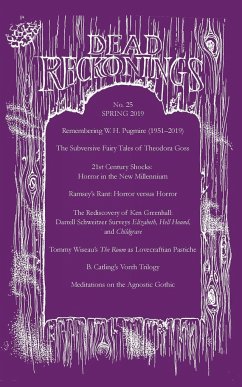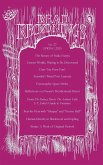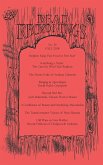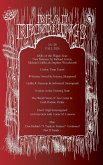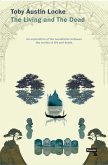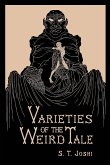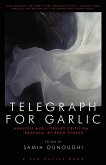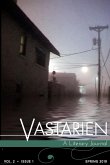Ramsey CampbellDead Reckonings No. 25 (Spring 2019)
Herausgeber: Houstoun, Alex; Abolafia, Michael J.
Andere Kunden interessierten sich auch für
Produktdetails
- Verlag: Hippocampus Press
- Seitenzahl: 98
- Erscheinungstermin: 20. Juni 2019
- Englisch
- Abmessung: 203mm x 127mm x 6mm
- Gewicht: 116g
- ISBN-13: 9781614982722
- ISBN-10: 1614982724
- Artikelnr.: 57109765
Hinweis: Dieser Artikel kann nur an eine deutsche Lieferadresse ausgeliefert werden.
- Libri GmbH
- Europaallee 1
- 36244 Bad Hersfeld
- gpsr@libri.de
"I'm Ramsey Campbell. I write horror." That's how I introduce myself at readings and on panels, and in conversation too if the opportunity arises. I quite enjoy being told that people don't like horror, which they don't read (a situation that prompts me to ponder how they can know). Sometimes they even tell me that they don't like the sort of thing I write, although they haven't read it. On occasion they approach me to let me know as much. Admittedly the sort of fun this affords is limited, and I think there's a better reason for me to keep up the image. I believe I'm in a minority of writers who say that they write horror. Some of those who made their name with it seem eager to show they've moved on. Some might even like to convince us that they never entered the field, and seek to erase all traces of their presence as they flee the scene of the crime. I won't be doing either. Perhaps I was lucky to encounter the classics of the genre first - anything that found its way between hard covers and into the public library - but I've never faltered in my conviction that horror is a branch of literature, however much of it lets that tradition down. I started writing horror in an attempt to pay back some of the pleasure the field has given me, and I haven't by any means finishedI don't expect to choose to, ever. Lovecraft declared that the weird tale - by which he meant much of what I mean by horror fiction - could only ever be a portrayal of a certain type of human mood. Certainly one of the pleasures of some of the greatest work in the field is the aesthetic experience of terror (which involves appreciating the structure of the piece and, in prose fiction, of the selection of language). I don't see this as limited. There's surely no more reason to criticise a piece for conveying only this experience than there is to object to a comedy for being nothing except funny (as might be said of Laurel and Hardy, surely the greatest exponents on film) or a tragedy for making its audience weep. Indeed, I wish more of the field still assailed me with dread: these days little besides the darker films of David Lynch achieve it. However, the field is capable of much more, and frequently succeeds - as satire or as comedy (however black), as social comment, as psychological enquiry, and perhaps best of all when it aspires to the awesome, the sense of something larger than can be directly shown. One reason I stay in the field is that I haven't found its boundaries. Some years ago at a literary conference I attended a panel on which the speakers seemed to be hailing the death of genre (by cross-fertilisation, I believe). There's certainly nothing wrong with expanding genres by enriching them from without; indeed, writers who read purely within their own fields tend to end up buried in them (although bringing lived experience to bear on them is at least as important as reading more widely). All the same, I had the impression that the panel felt that the destruction of genre was a good thing, and I failed to grasp how. I almost spoke up to ask whether, since I didn't feel constrained by my field, I was somehow inadequate. It would have been a silly question, since I know my answer. (continued at www.RamseyCampbell.com)

